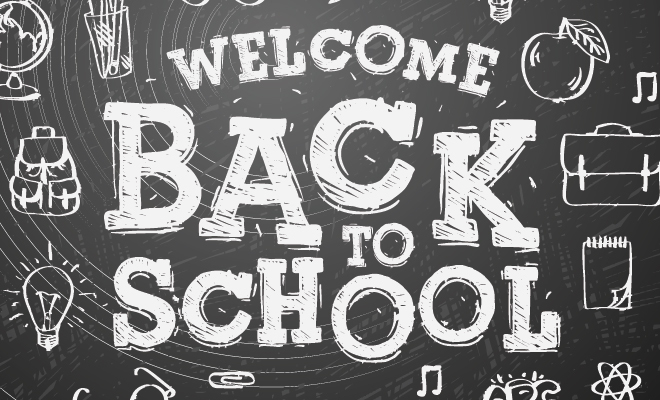
Getting Back to School With Confidence
New classes, new teachers, new friends and much to learn! School will begin before we know it, so it’s time to do some initial “homework” and get ready. Simple steps can be taken to get oriented to the school year, prepare for academic success and strengthen social connections that benefit your child.
Getting oriented to the school is first on the list. Does your child’s school have a formal orientation meeting? If not, it doesn’t hurt to ask staff if it’s possible for you and your child to look around a few days or weeks before school begins. You can find the classroom or multiple rooms where your child will be attending classes and other school functions. If your child will have a locker, locate that too. Even better, have your child practice unlocking it or a similar kind of lock. Many children are anxious about remembering their combinations and correctly dialing it, so practicing this can be very helpful. If your child feels more confident about where everything is located and how it works, first day jitters will be substantially reduced.
Practice the route your child will take if she’s walking to school, along with noting alternate paths if that would ever be needed. It also doesn’t hurt to consider where and how she can seek help if that’s ever warranted. Both you and your child will feel greater ease knowing such plans are in place.
Ensure that you and your child know about any policies or rules that the school follows. It’s likely that there are guidelines for all students to follow, including a dress code, rules for cell phone usage, collection of vaccination records and policies on attendance, including late arrivals, early pick-ups and missing blocks of time for appointments. It is especially good for you to know the details about any documentation that is needed, so you can ensure you have it collected and submitted in good time. If there are rules about proper dressing, it’s helpful to have time to find the appropriate clothing. If your child has flexibility for choosing clothes, you might also encourage her to wait until the school year begins to make final purchases, after she sees fashion trends among peers.
A second and very important area for consideration is determining resources and opportunities for strengthening your child’s approach to learning, studying and test-taking. Many children benefit from guidance on getting organized. Consider whether a paper day planner is useful (or might get lost!), or whether an electronic device and program might be used with greater ease and consistence. Some sort of system will be needed to track assignment deadlines, maintain awareness for upcoming tests and avoid procrastination. Time management is key, and if your child learns such skills at this stage of life, it will benefit him immensely in his future academic and career pursuits. You and your child will benefit from considering and implementing a routine schedule that will be followed throughout the week, including time for study, extracurricular activities and leisure time to rest.
At some point, all students need some extra help with learning their course material. Let’s face it; the subject areas can be quite challenging for the parents, too! Proactively line up resources. The school might have additional services or tutoring available for a student who is struggling, especially if the child has a diagnosed learning difficulty. However, all students can benefit from a program uniquely tailored to their needs, targeting and strengthening areas of concern. Explore programs and services in your community, such as Sylvan Learning Center or Kumon. Additional support to your child’s learning can result in an immediate improvement in classroom performance and also make a longer-term investment by bolstering self-confidence for future learning and pursuits.
The third area to address is the very big social piece to the academic experience. Your child is likely focused on his peers, but effective socialization begins with you. Express receptivity to hearing and addressing your child’s concerns, however small or big. Maintaining an open exchange of information with parents is essential. If your child feels comfortable addressing minor issues with you, this will pave the way to approaching bigger, heavier concerns when they arise.
Encourage your child to develop a strong social network that supports her well-being. If your child knows of particular peers attending the same classes with her, it might be helpful to get together before the school year begins to reconnect. This strengthens relationships and buffers your child against stress. Especially if first day jitters are a concern, plan ahead for your child and a friend to meet and enter the school together. It’s always a comfort to begin a new adventure with a good friend by your side.
It’s time to finish any remaining “homework” to prepare and begin a rewarding, successful school year! HLM
Sources: greatschools.org, kumon.com and sylvanlearning.com.







